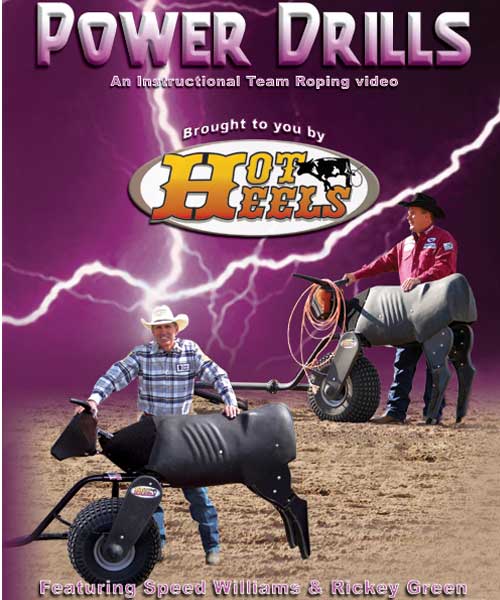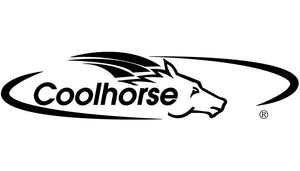Drills for the Practice Pen - Great advice from Speed Williams August, 2009.

stacey |
Athletes in most sports utilize drills of some kind. It only makes sense to do the same thing with your horse, also an athlete. I use the Hot Heels in my practice drills for my horses. I can lope my head horse up to the dummy and keep him in my hand through the turn and keep him in control, whether we move left or right.
On a mechanical dummy you can teach a horse to speed up or slow down without forcing him by kicking and pulling. This is a great way to teach a horse to engage with the steer and eventually do it automatically.
Roping fast steers on a young horse is detrimental to his success. It’s important to keep things slow and controlled (on a young horse) and prevent his heart from racing. A roping machine allows you to make crucial repetitive runs without the problems that occur when a partner misses. I’ve seen many students learn their timing much quicker by roping a machine. They can run a hundred steers without their horse getting excited.
The dummy also offers many benefits to scoring and preparing your horse. If your horse makes a mistake on the dummy, you can take the time to correct him. However, if you’re in the middle of a live run, you’re caught up in trying to catch and usually forget about your horsemanship. If you’re running down the arena when the cow moves left and your horse doesn’t, you have to stop and show your horse his mistake. If you go ahead and rope, you’re showing your horse he doesn’t have to get in position. This is easy to correct on a dummy.
“Power Drills” video Rickey Green and I demonstrate 17 different drills on a mechanical dummy that help you learn to control your horse. Remember, most of the problems we have with our horses are things we have taught them in the practice pen.
Speed Williams, August 2009
When you are ready to start practicing, check here for our full selection of ropes, roping machines, and roping supplies.
